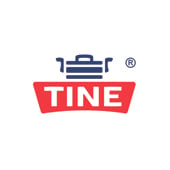
Norway 2019

General counsel | TINE


Nina Melandsø
General counsel | TINE
General counsel | TINE SA
What are the most important transactions and litigations that you have been involved in during the last two years?
We assist the top management regularly and are thus involved in significant cases almost on daily basis. Some examples include establishing a new joint venture company – Mimiro AS – including advice on company law, competition law, IPR-/IT-law, negotiations and drafting contracts; assisting in several IPR- and marketing law cases, some of them of high importance. We assisted in cases involving the Norwegian Consumer Authority, The Norwegian Board of Appeal for Industrial Property Rights (Kfir) and MFU (The Food and Drink Industry Professional Practices Committee). We also provided assistance related to re-construction of TINE’s largest production facility in Oslo (TINE Meieriet) a new production facility in Oslo; the construction of a new cheese production plant in Ireland, TINE’s largest ever international investment and assisted in several matters drafting agreements, negotiation, dealing with local lawyers.
In what ways do you see the in-house legal role evolving in your region over the next few years?
I think we will go from legal advisors to more strategic advisors, working at a higher level. More assessments – including simple legal issues – will be solved “in the production/business”.
What would you say are the unique qualities required to be successful as an in-house lawyer in your industry?
As an in-house lawyer it is required to understand the business and the company’s strategy. It is also decisive to identify and understand the legal risks, and to handle them. The legal department should handle legal issues within the company’s core business, to keep this competence in-house. It is also important to share legal expertise and knowledge internally, enabling non-legal officers to assess simple legal issues.
Do you have any effective techniques for getting the most out of external counsel, in terms of how to instruct them?
We work closely with external counsel; all use of external lawyers goes through legal department, and we agree in every cases how we want to be involved (only “by copy” or more actively), we have status meetings regularly. With respect to costs we always ask for cost estimates and in bigger cases we ask for weekly or monthly reports. We also expect our external lawyers to contact us and discuss how to handle cases, for example if they think TINE can do part of the work internally to save costs.
Have any new laws, regulations or judicial decisions greatly impacted your company’s business or your legal practice?
Next year the export subsidies on cheese will end, which has a great impact on TINE and TINE’s owners. From mid-2020 Jarlsberg – TINE’s biggest export article, is going to be made outside Norway. This will lead to a significantly drop in milk production in Norway and the farmers income. As a result of this and strong import growth, Tine SA last week announced it will cut the equivalent of 400 jobs in order to save NOK1bn.
What external factors have you felt made the most impact on the legal department in the last two years?
No special factors over the last two years, [but] a general challenge is the level of the salary in the law firms. It is hard to get the best candidates with a typical in-house budget.
Does the company’s position as a market regulator in the Norwegian dairy industry present any challenges to the legal department?
We must of course, take this role into account in our business and advise. I do not see it as a challenge, but more as an extra factor – the public responsibility – that we need to consider when we give advice. In addition, TINE is required to distinguish between the company’s roles as market regulator and the commercial business. The legal department mainly assists within the commercial business, but as general counsel I am also involved in some regulatory issues.
What can law firms do to improve their services to the legal department?
Most external lawyers can improve the relevance of their advice by giving short to-the-point-advice. To manage that they must limit the scope by discussing the matter with the client before they start the work. I also think that external lawyers – especially the client contact – should spend more time to understand the clients business and needs without charging the client for this, such as participating in legal department meetings. In the future I think we, to a larger extent, will ask for senior or partner skills and not so much junior resources – especially not to the prices they are charging for juniors today. Further, I think law firms should be more cost effective, for example by improving or changing their business models. Hourly billing is – in general – not in the client’s interest. Law firms are not good enough to limit their work and the costs, and they are not good enough to estimate costs. Thus, it is challenging to follow up and to keep costs under control.